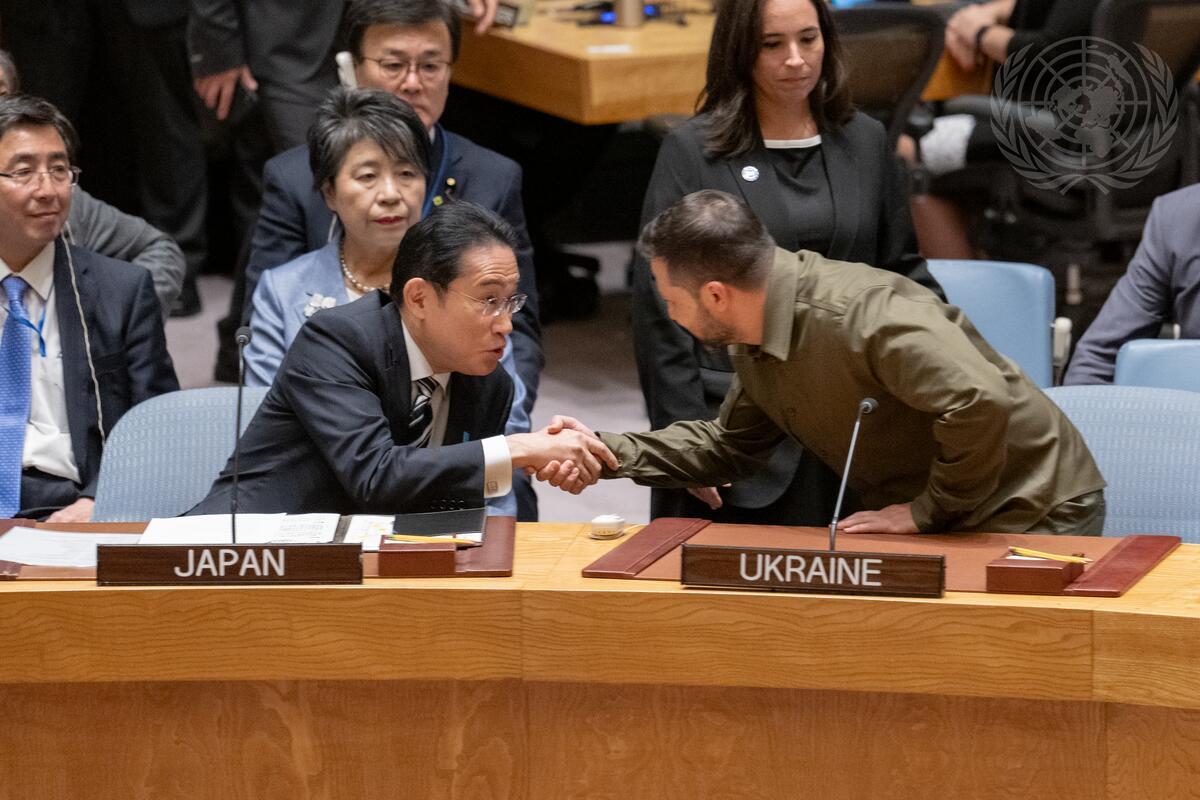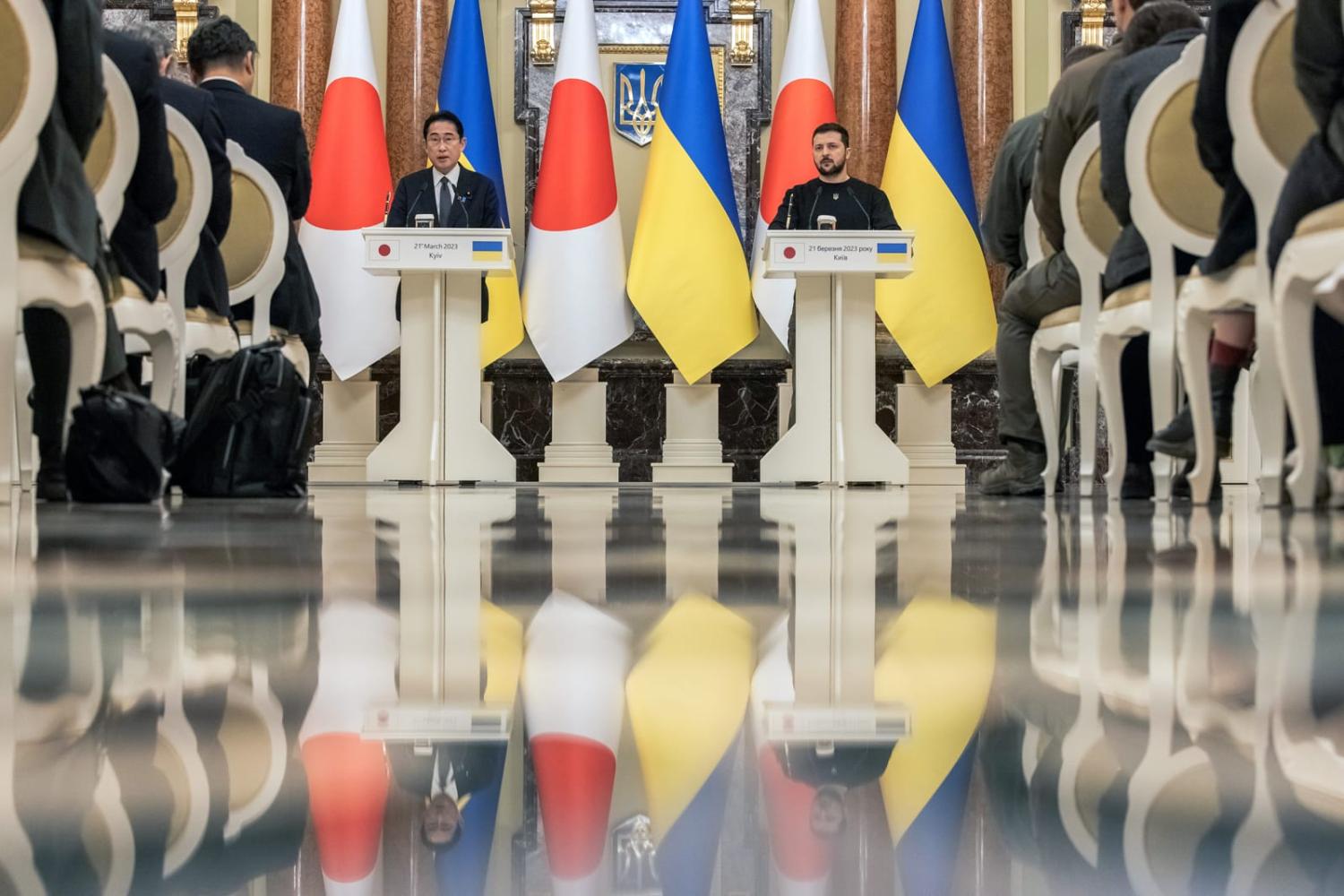Since the Russian invasion in 2022, Japan has emerged as a steadfast supporter of Ukraine. The notoriously immigration-resistant Japan has so far accepted 2,500 Ukrainian refugees. In recognition that Ukraine will face a daunting reconstruction process, Japanese and Ukrainian government and business officials gathered for the “Japan-Ukraine Conference for Promotion of Economic Growth and Reconstruction” in February this year. As part of the gathering, 56 cooperation agreements were signed to develop infrastructure, target critical economic sectors for growth, and expand overall trade.
While Japan’s efforts in Ukraine are laudable, they raise questions about why the country is pursuing such a leading role.
One of the core motivations relates to security concerns, as the security dimension of Japanese military assistance to Ukraine aligns with anxieties over parallel Taiwan and Asia-Pacific threats. Japan aims to establish long-term partners in the event of future economic or security crises.
The majority of Japanese military aid to Ukraine has involved non-lethal technology, such as “hazmat” gear, military vehicles, equipment for mine-clearing operations, and food rations.
Media reports last year suggested that Japan was considering the transfer to Ukraine of more advanced equipment, such as “military communications systems”. More recently, Tokyo is reportedly considering transferring Japanese-made Patriot missiles to Ukraine via the United States. If such a transfer did occur, it would mark a dramatic evolution of Tokyo’s defence and foreign policy.
Japan’s defence posture has undergone gradual change in recent times, as reflected in domestic spending. Tokyo’s current goal for the defence budget is to reach 2% of GDP by 2027. Maintaining support for Ukraine and increased defence spending will largely depend on the party in power. The ruling Liberal Democratic Party (LDP) supports these objectives, and given the LDP’s continued hold over Japanese politics – present troubles for Prime Minister Fumio Kishida notwithstanding – the country will likely continue to strengthen its security capabilities.
That said, Japan still faces a difficult balancing act. Article 9 of Japan’s post-war constitution renounced war as a sovereign right and limited the military to self-defence purposes. Confronted by an increasingly turbulent Asia-Pacific region, Tokyo has sought to shed its pacifist stance and enhance its defence capabilities. China’s claim to Taiwan and the potential regional spillover of a war between Beijing and Taipei is a persistent concern in Tokyo, not to mention an unpredictable North Korea and disputes in the East and South China Seas.

Russia’s invasion of Ukraine has served as a turning point for Japanese security anxieties, as its analogous nature to a potential China-Taiwan conflict makes the threat of war in the Asia-Pacific even more alarming. Kishida explicitly drew this comparison last year by warning “Ukraine today could be East Asia tomorrow”. Japan’s assertive posture on Ukraine is intended to signal Tokyo’s resistance to Beijing spurring tension in the region.
Japanese relations with Russia are themselves historically complex. A territorial dispute over the Southern Kuril Islands remains unresolved, with the war in Ukraine further souring talks between Moscow and Tokyo, particularly since Russia also deployed weapons to the islands. Meanwhile, to show solidarity with Tokyo and to irritate Moscow , Kyiv has recognised Japan’s territorial claim and has encouraged other world leaders to follow suit. Tokyo views a victory for Ukraine as a major step in driving out Russia’s military presence on the Southern Kurils. Japan might only have a dim prospect of reclaiming the islands, given that Russia has repeatedly dismissed Japan’s efforts at negotiation, but Ukraine’s endorsement for Japan’s claim at least lends the country greater diplomatic support.
Japan’s backing for Ukraine also stems from a desire to secure additional long-term partnerships as a buffer against future security or economic shocks. One of the most distinguishing features of Japanese aid to Ukraine is its focus on reconstruction and long-term economic recovery, as well as the substantial presence of the private sector. Japanese businesses can benefit in the short term: global defence industries and infrastructure developers are profiting already from selling services, systems, and platforms, directly or indirectly, to Ukraine. As for long-term gains, Japanese companies have targeted promising Ukrainian economic sectors, including agriculture, energy, green metallurgy, cybersecurity, and construction. Japan also seeks a stronger relationship with Ukraine to support the European nation’s long-term economic and security concerns.
Tokyo sees its own interest supported in helping Kyiv win. What “winning” means might be debatable – but Japan knows that global support is essential and has an eye to the future.

